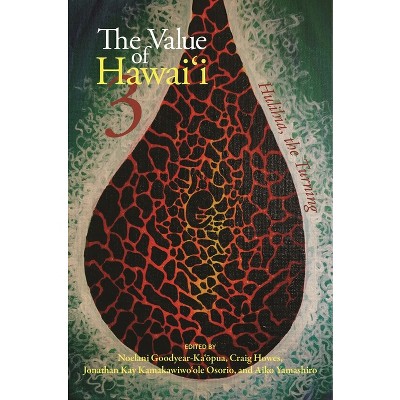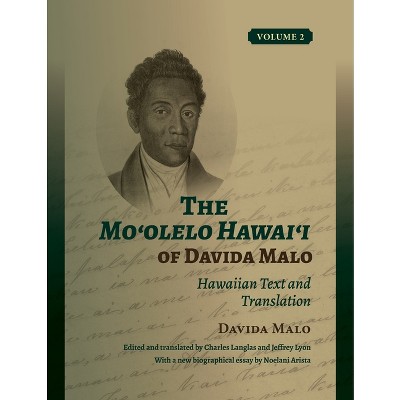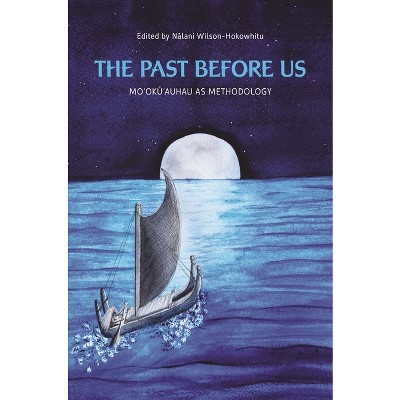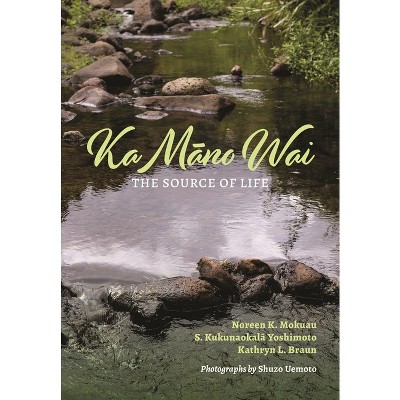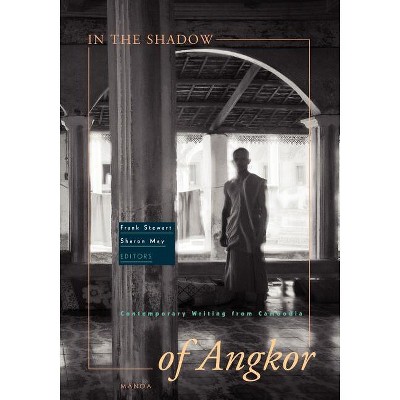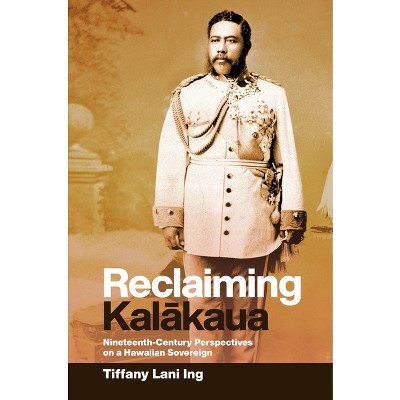Moʻolelo - (Hawai'inuiākea) by C M Kaliko Baker & Tammy Hailiʻ & ō & pua Baker & Osorio (Paperback)

About this item
Highlights
- An essential contribution to contemporary Kanaka Maoli (Native Hawaiian) scholarship, Moʻolelo: The Foundation of Hawaiian Knowledge elevates our understanding of the importance of language and narrative to cultural revitalization.
- About the Author: C.M. Kaliko Baker (Editor) C. M. Kaliko Baker is associate professor at Kawaihuelani Center for Hawaiian Language at the University of Hawaiʻi at Mānoa.
- 264 Pages
- Social Science, Indigenous Studies
- Series Name: Hawai'inuiākea
Description
About the Book
"An essential contribution to contemporary Kanaka Maoli (Native Hawaiian) scholarship, Mo°olelo: The Foundation of Hawaiian Knowledge elevates our understanding of the importance of language and narrative to cultural revitalization. Mo°olelo preserve the words, phrases, sentences, idioms, proverbs, and poetry that define Kåanaka Maoli. Encompassing narratives, literature, histories, and traditions, mo°olelo are intimately entwined with cultural identity, reciprocal relationships, and the valuing of place, collectively informing and enriching all Hawaiian life. The contributors, all Kanaka Maoli scholars, artists, and advocates from across the Pae °åAina o Hawai°i (Hawaiian archipelago), all fluent in °åOlelo Hawai°i (Hawaiian language), describe how mo°olelo constantly inform their linguistic, literary, translation, rhetorical, and performance practices, as well as their political and cultural work. Chapters in °åOlelo Hawai°i alternate with chapters in English, with translanguaging appearing when needed. Kamalani Johnson honors Larry Kauanoe Kimura's commitment to the revitalization of °åOlelo Hawai°i. Cover artist °Ahukini Kupihea tells the story of his own creative process and uncovers the layers of meaning behind his artwork. Through careful analysis of nineteenth-century texts, R. Keawe Lopes, Jr., demonstrates the importance of mo°olelo and mele (song/poetic expression) preservation. Hiapo Perriera explores the profound relationship between mo°olelo and the resurgence of kåakåa°åolelo (oratory). Kekuhi Keali°ikanaka°oleo Haililani shares a methodology and praxis for engaging with mo°olelo. Highlighting the ideology of aloha °åaina embedded in mele, Kahikina de Silva reveals themes of political resistance found in mele about food. Kaipulaumakaniolono Baker examines mele that archive key movements in Hawai°i's history and employs contemporary practices to document current events. Tammy Haili°åopua Baker delineates the political implications of drawing on mo°olelo heritage in Kanaka Maoli theatre. Ku°ualoha Ho°omanawanui focuses upon mo°olelo found in the politically conscious artwork of Kanaka Maoli wåahine (women) visual artists. Kamaoli Kuwada evaluates the difficulties and benefits of translation and stresses the importance of fluency. C. M. Kaliko Baker further demonstrates how fluency and comprehension of mo°olelo make it possible to retrieve essential empirical data on Hawaiian linguistic practice. Kalehua Krug takes us on his journey of learning to become a kåakau måolåi (traditional tattoo artist). The essays together provide rich perspectives for Kåanaka Maoli seeking to understand their pasts, to define who they are today, and to set their courses for desired and necessary futures"--Book Synopsis
An essential contribution to contemporary Kanaka Maoli (Native Hawaiian) scholarship, Moʻolelo: The Foundation of Hawaiian Knowledge elevates our understanding of the importance of language and narrative to cultural revitalization. Moʻolelo preserve the words, phrases, sentences, idioms, proverbs, and poetry that define Kānaka Maoli. Encompassing narratives, literature, histories, and traditions, moʻolelo are intimately entwined with cultural identity, reciprocal relationships, and the valuing of place; collectively informing and enriching all Hawaiian life. The contributors--Kanaka Maoli scholars, artists, and advocates fluent in ʻŌlelo Hawaiʻi (Hawaiian language) from across the Pae ʻĀina o Hawaiʻi (Hawaiian archipelago)--describe how moʻolelo constantly inform their linguistic, literary, translation, rhetorical, and performance practices, as well as their political and cultural work. Chapters in 'Ōlelo Hawaiʻi alternate with chapters in English, with translanguaging appearing when needed.
Kamalani Johnson honors Larry Kauanoe Kimura's commitment to the revitalization of ʻŌlelo Hawaiʻi. Cover artist ʻAhukini Kupihea tells the story of his own creative process and uncovers the layers of meaning behind his artwork. Through careful analysis of nineteenth-century texts, R. Keawe Lopes Jr. demonstrates the importance of moʻolelo and mele (song/poetic expression) preservation. Hiapo Perreira explores the profound relationship between moʻolelo and the resurgence of kākāʻōlelo (oratory). Kekuhi KealiʻikanakaʻoleoHaililani shares a methodology and praxis for engaging with moʻolelo. Highlighting the ideology of aloha ʻāina embedded in mele, Kahikina de Silva reveals themes of political resistance found in mele about food. Kaipulaumakaniolono Baker examines mele that archive key movements in Hawaiʻi's history and employs contemporary practices to document current events. Tammy Hailiʻōpua Baker delineates the political implications of drawing on moʻolelo heritage in Kanaka Maoli theatre. kuʻualoha hoʻomanawanui focuses upon moʻolelo found in the politically conscious artwork of Kanaka Maoli wāhine (women) visual artists. Kamaoli Kuwada evaluates the difficulties and benefits of translation and stresses the importance of fluency. C. M. Kaliko Baker further demonstrates how fluency and comprehension of moʻolelo make it possible to retrieve essential empirical data on Hawaiian linguistic practice. Kalehua Krug takes us on his journey of learning to become a kākau mōlī (traditional tattoo artist). The essays together provide rich perspectives for Kānaka Maoli seeking to understand their pasts, to define who they are today, and to set their courses for desired and necessary futures.About the Author
C.M. Kaliko Baker (Editor)C. M. Kaliko Baker is associate professor at Kawaihuelani Center for Hawaiian Language at the University of Hawaiʻi at Mānoa. Tammy Haili'ōpua Baker (Editor)
Tammy Hailiʻōpua Baker is associate professor in the Department of Theatre and Dance at the University of Hawaiʻi at Mānoa.






